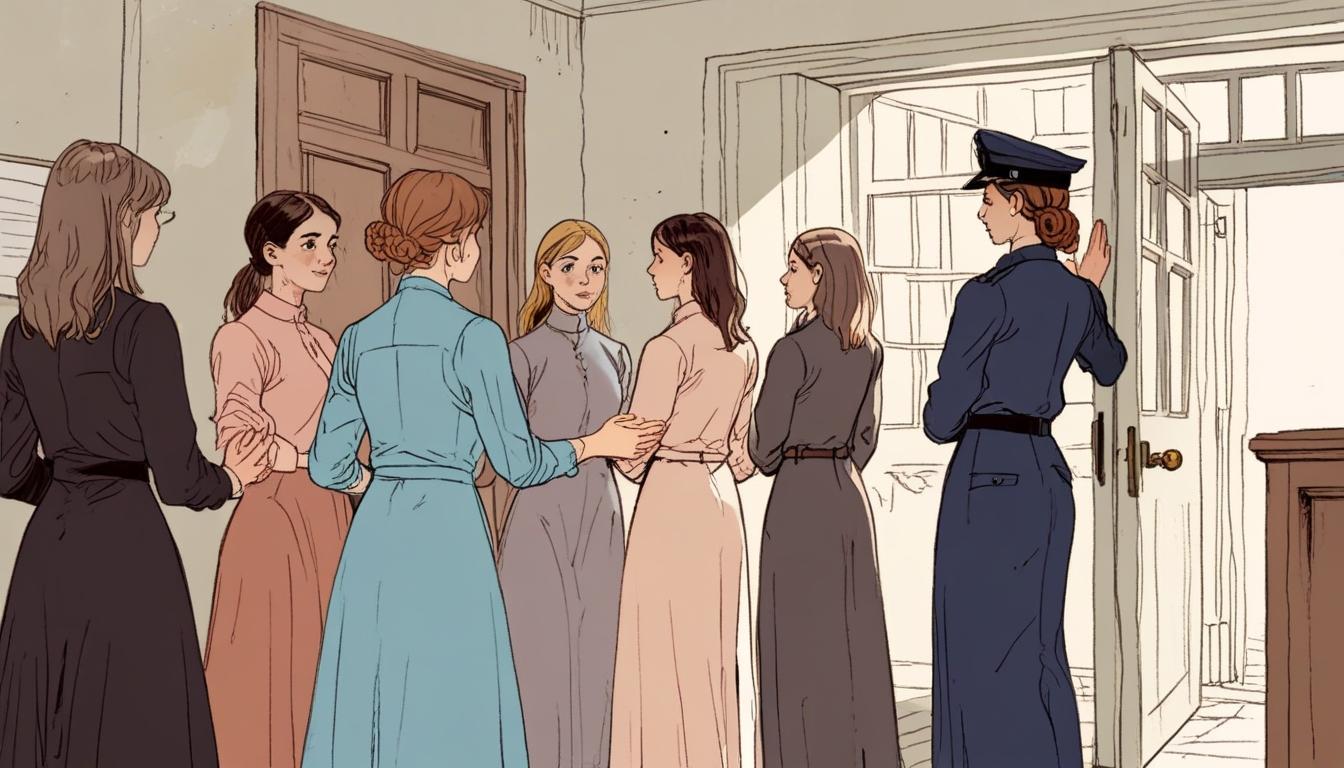On a seemingly ordinary evening in a London Quaker meeting house, a group of six young women gathered to discuss pressing global issues, notably the climate crisis and the ongoing war in Gaza. This gathering represented the peaceful spirit of the Quaker movement, famed for its advocacy of social justice and nonviolent protest. However, the atmosphere shifted dramatically when the serenity was shattered by a sudden police raid that drew into question the authority and methods of the Metropolitan Police, the UK's largest law enforcement agency.
As the women shared their thoughts, they were interrupted by the sound of police officers forcibly entering the Grade II-listed building, brandishing stun guns and arresting the six on charges of conspiring to cause a public nuisance. The raid, described as “intelligence-led,” involved the presence of up to 30 officers, a show of force that many are now questioning given the nature of their meeting. Zahra Ali, the youngest among them at just 18, recounted the harrowing experience of her detention. She was held for 17 hours and expressed disbelief at the heavy-handed approach: “We were just a bunch of young people talking about our government, about protesting, and they arrested us for that."
Criticism of the raid has emerged vocally from various quarters, including religious leaders and politicians. The Quakers have condemned the action, emphasising that it violated their sacred space and raised concerns about the increasing repression of peaceful protest under the existing legal framework. The Quaker community has historically defended the right to assemble and engage in collective expression, and this incident feels like a significant infringement on those liberties. In the wake of the raid, they held a silent vigil outside New Scotland Yard, calling for peace and highlighting the violent contrast of the police's actions against the backdrop of their principles.
The use of newly enacted legislation further complicates matters. Laws introduced under the Police, Crime, Sentencing and Courts Act 2022, and the Public Order Act 2023, have significantly curtailed the rights of citizens to voice dissent in non-violent forms. Critics argue that such laws contribute to a culture of fear regarding engagement in public protest, as exemplified in the arrest of the six women at the Quaker meeting house, which, according to Mal Woolford, an elder in the Westminster Quaker Meeting, seemed less a tactical response to criminality and more of an aggressive show of force against a peaceful demographic.
The presence of political figures at recent vigils further underscores the growing concern regarding civil liberties in the UK. Carla Denyer, the Green Party co-leader, articulated the increasing trend of suppressing peaceful demonstrations, likening police actions to historical transgressions against fundamental rights. She noted that when a movement as venerable as the Quakers faces such aggressive policing, it signals a troubling direction for society. “When the government are after the Quakers, you know you’re in trouble,” she remarked, reflecting a wider apprehension about the implications for public discourse and dissent.
This has not just resonated within political circles; it has touched the heart of the community. A pro-Palestinian rally, organised by Youth Demand in the wake of the arrests, drew approximately 100 attendees who voiced their discontent with the police’s actions. The rally served as a reminder of the communal response to perceived overreach and the importance of solidarity in the face of adversity.
As the Metropolitan Police stated their rationale for the intervention, claiming they acted to prevent serious disruption, many in the community find the justification hollow. Critics have challenged the notion that speaking about slated actions constitutes a legitimate basis for such drastic pre-emptive measures. The situation invokes comparisons to the fictional notion of “thought crimes,” where intentions can be criminalised without tangible evidence of wrongdoing.
As public discourse around definitions of protest and civil liberties continues, the Quaker meeting raid stands as a stark reminder of the complexities surrounding engagement, dissent, and the right to assembly in contemporary Britain. The story has unfolded not just as an isolated incident, but as a critical moment reflecting broader societal tensions regarding authority, freedom, and justice in an era where protest is increasingly subject to scrutiny and regulation.
With public sentiment shifting towards a protective stance for peaceful assembly, and as protests against the government’s legislative measures grow louder, the increasing repression faced by social movements, including those championed by Quakers and climate activists, may very well signal a challenging time ahead for civil liberties in Britain.
Reference Map
- Paragraphs 1, 2, 4, 5
- Paragraphs 3, 4
- Paragraphs 3, 4
- Paragraphs 1, 3, 4
- Paragraphs 3, 5
- Paragraphs 3, 5
- Paragraphs 1
Source: Noah Wire Services
